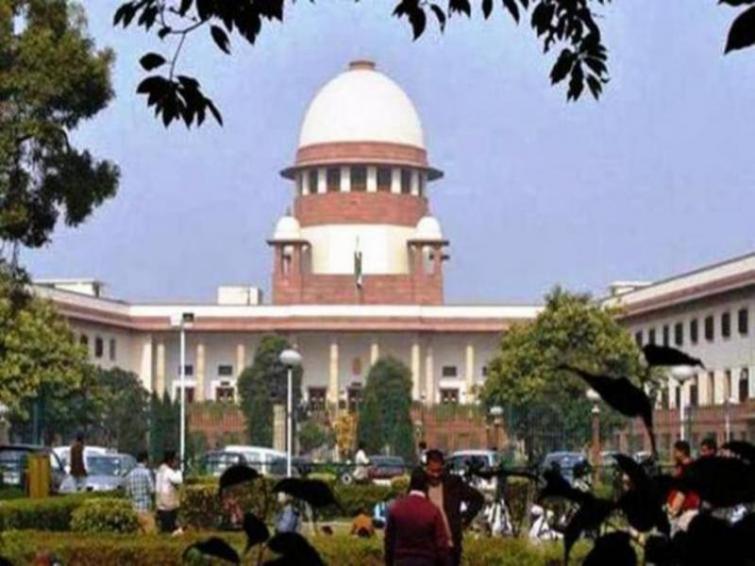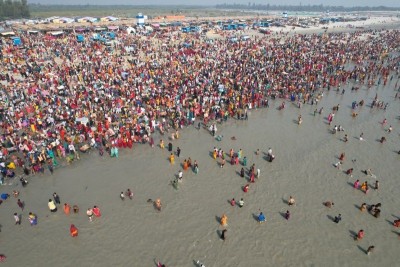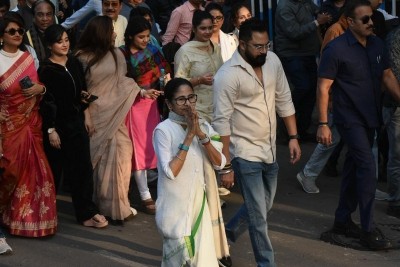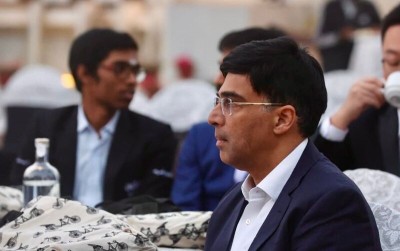
'How can temporary law become permanent?' Supreme Court asks petitioners challenging repeal of Article 370
New Delhi: A five-judge constitution bench of the Supreme Court headed by Chief Justice of India DY Chandrachud on Thursday questioned how Article 370, designated temporary in Constitution, could become permanent, media reports said.
The bench also comprising Justices Sanjay Kishan Kaul, Sanjiv Khanna, BR Gavai, and Surya Kant, began hearing a series of petitions challenging the Centre's decision on August 5, 2019, to revoke Article 370.
The bench questioned senior advocate Kapil Sibal, the lead counsel for the petitioners, about how a provision (Article 370), originally designated as temporary in the Constitution, could become permanent after the dissolution of the Jammu and Kashmir Constituent Assembly in 1957.
The abrogation of Article 370, which gave special status to Jammu & Kashmir, had faced strong criticism from some major opposition parties but received enthusiastic support from BJP supporters.
According to an NDTV report, the apex court referred to proviso 3 of Article 370 which says, "Notwithstanding anything in the foregoing provisions of this article, the President may, by public notification, declare that this article shall cease to be operative or shall be operative only with such exceptions and modifications and from such date as he may specify: Provided that the recommendation of the Constituent Assembly of the State referred to in clause (2) shall be necessary before the President issues such a notification."
"What happens when the tenure of constituent assembly comes to an end? No constituent assembly can have an indefinite life. The proviso to clause (3) of Article 370 refers to the recommendation of the constituent assembly of the state, and it says before President issues notification the recommendation of the Constituent Assembly is required. But the question is what would happen when the constituent assembly ceases to exist?" the CJI asked Sibal, said the report.
In response to the bench's query, Sibal clarified that the petitioners’ main contention is that the President cannot revoke Article 370 without the recommendation of the constituent assembly.
Justice Gavai then questioned whether their argument implies that nothing could have been done about Article 370 after 1957 when the Jammu and Kashmir constituent assembly's tenure ended.
Sibal stated that the court is presently interpreting a Constitutional provision and is not seeking to legitimize a process that is not recognized by the Constitution.
"Through a political act Article 370 was tossed out of the window. This was not a constitutional act. Parliament took upon itself the role of constituent assembly and revoked Article 370 saying it is exercising the will of the people of Jammu and Kashmir. Can such a power be exercised?" said Sibal challenging the manner in which Article 370 was rescinded, the report stated.
The hearing in the case remained inconclusive and will resume on Thursday.
The Supreme Court is holding daily hearings on the matter except on Mondays and Fridays, which are designated for miscellaneous matters. Only fresh petitions are heard for admission on these days, and regular matters are not taken up.
The court had previously clarified that the Centre's affidavit regarding the conditions in Jammu and Kashmir after the August 5, 2019 notification revoking Article 370 will not affect the Constitutional issue being adjudicated by the five-judge bench.
Support Our Journalism
We cannot do without you.. your contribution supports unbiased journalism
IBNS is not driven by any ism- not wokeism, not racism, not skewed secularism, not hyper right-wing or left liberal ideals, nor by any hardline religious beliefs or hyper nationalism. We want to serve you good old objective news, as they are. We do not judge or preach. We let people decide for themselves. We only try to present factual and well-sourced news.







